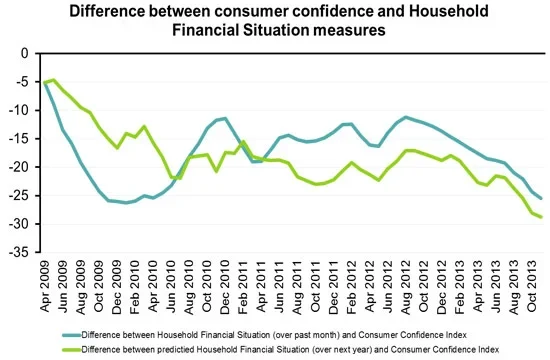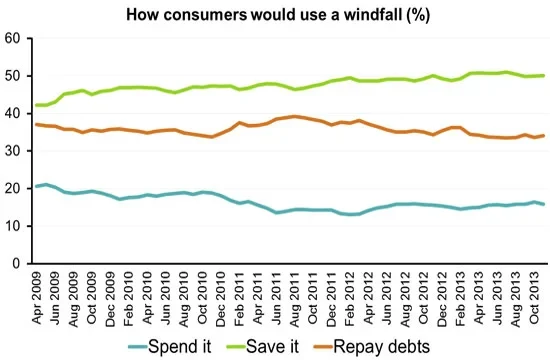YouGov CEO, Stephan Shakespeare considers whether the 'squeezed middle' are feeling the benefits of economic growth.
The Chancellor's Autumn Statement, made last Thursday, was hailed in many quarters as a good day for George Osborne and for the government. But when we conducted an online focus group of people from the so-called “squeezed middle”, we found they are not yet feeling the benefits of growth.
The picture they painted of their own finances was far removed from the burgeoning economic recovery they’ve read about in the newspapers.
Participants all said they had cut down to near bare essentials and were feeling particular pressure being on such a tight budget for Christmas.
“I think [the economy recovery] is slight so not very noticeable to us mere mortals,” is how a 44-year-old woman, who works as an airline administrator, described the situation.

Recent figures from the YouGov-Cebr Consumer Confidence Index suggest the surge in consumer optimism could be reaching a plateau because people’s outlook for their own household finances is not keeping pace with their improving confidence in other areas – such as house prices and business activity. Our research shows that following a year of economic growth, Britons are still three times more likely to save a cash windfall than spend it.

How this discrepancy will play into the next election is yet to be answered. Political polling we conducted immediately following the Autumn Statement found that while the coalition is trusted more than Labour to address the deficit and decide what’s best for the economy, Labour is trusted more on making decisions to keep down living costs.
Convincing voters that the gap between the headlines and their pocketbooks can be closed will be the central challenge for both Labour and the Conservatives at the next election.









